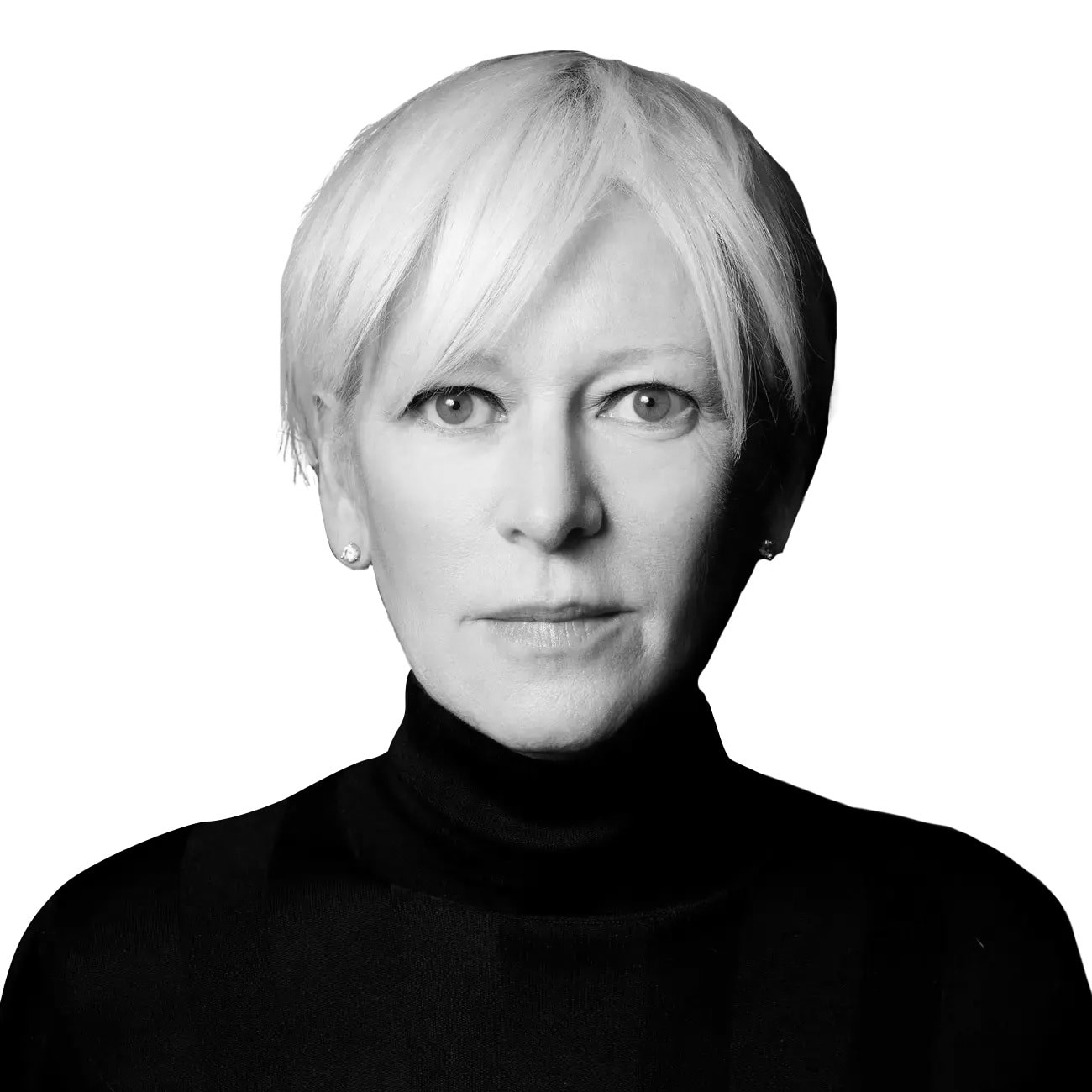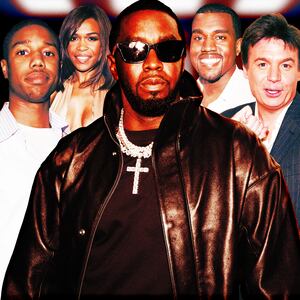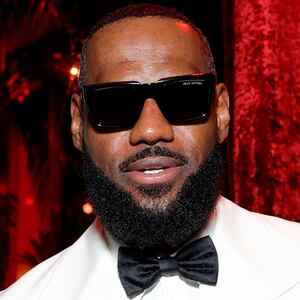Once the crown jewel of fashion’s social calendar, the Met Gala has officially devolved into a pageant of Pick Me energy—an orgy of try-hard looks and desperate influencer posing, now dominated by the TikTok generation’s endless thirst for attention.
This year’s theme, “Black Dandy,” was chosen with all the subtlety of a Balenciaga combat boot at a point when DEI was still in fashion and it looked as though then-Vice President Kamala Harris might win.
But the irony is thicker than Kim Kardashian’s lip liner: a celebration of Black male tailoring, from a Vogue editor who spent decades rarely supporting Black designers and rarely featuring Black talent on the cover of her magazine. Don’t be surprised if former Vogue editor-at-large André Leon Talley’s ghost haunts the party and trips a few people on the steps.
Anna Wintour may have turned herself into the Met’s eternal gatekeeper—her name now permanently etched on the Costume Institute—but the event’s legacy is looking more cursed than curated. While it’s raised millions for the museum, it’s also raised micro-bladed eyebrows for the company it has kept.
(I attended once, to support Oprah who was co-chairing. When I went to the loo the bathroom was full of models who having done the obligatory red carpet were plotting their escape from their advertiser overlords. I was home by 10.15pm. It ended surprisingly early for a New York gala.)
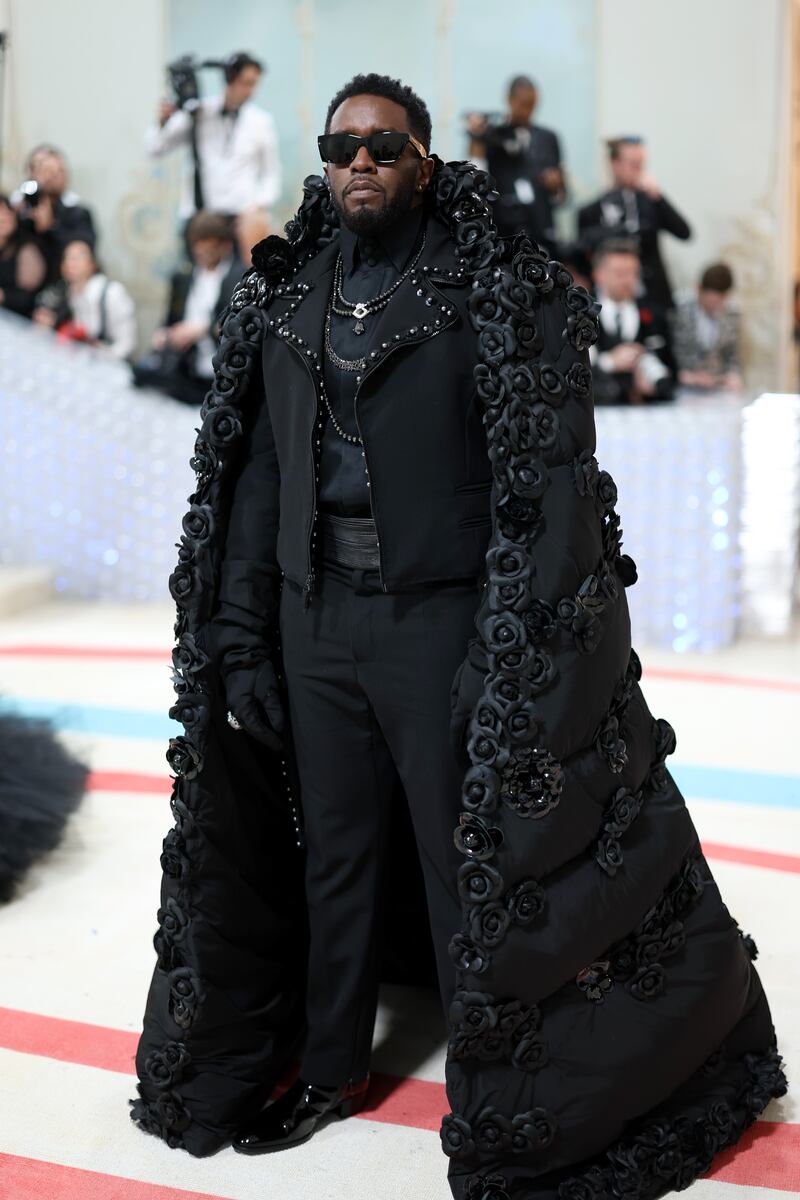
Let’s rewind two years when Sean “Diddy” Combs paused on the Met steps to launch his so-called couture collection. Today, Combs doesn’t have much choice about what to wear. He’s held without bail at the Metropolitan Detention Center in Brooklyn charged with sex trafficking and racketeering, which he denies. Jury selection for his trial started today as his lawyers scrambled to find a potential juror who hasn’t seen the hotel surveillance video—released by CNN—that shows Combs violently attacking his then-girlfriend, Cassie Ventura.
Ghislaine Maxwell, another former Met Gala attendee, also can’t make it to this year’s event. Like Combs, she’s in prison having been found guilty of sex trafficking a minor. Her 2003 all-denim ensemble is gathering dust along with her reputation.
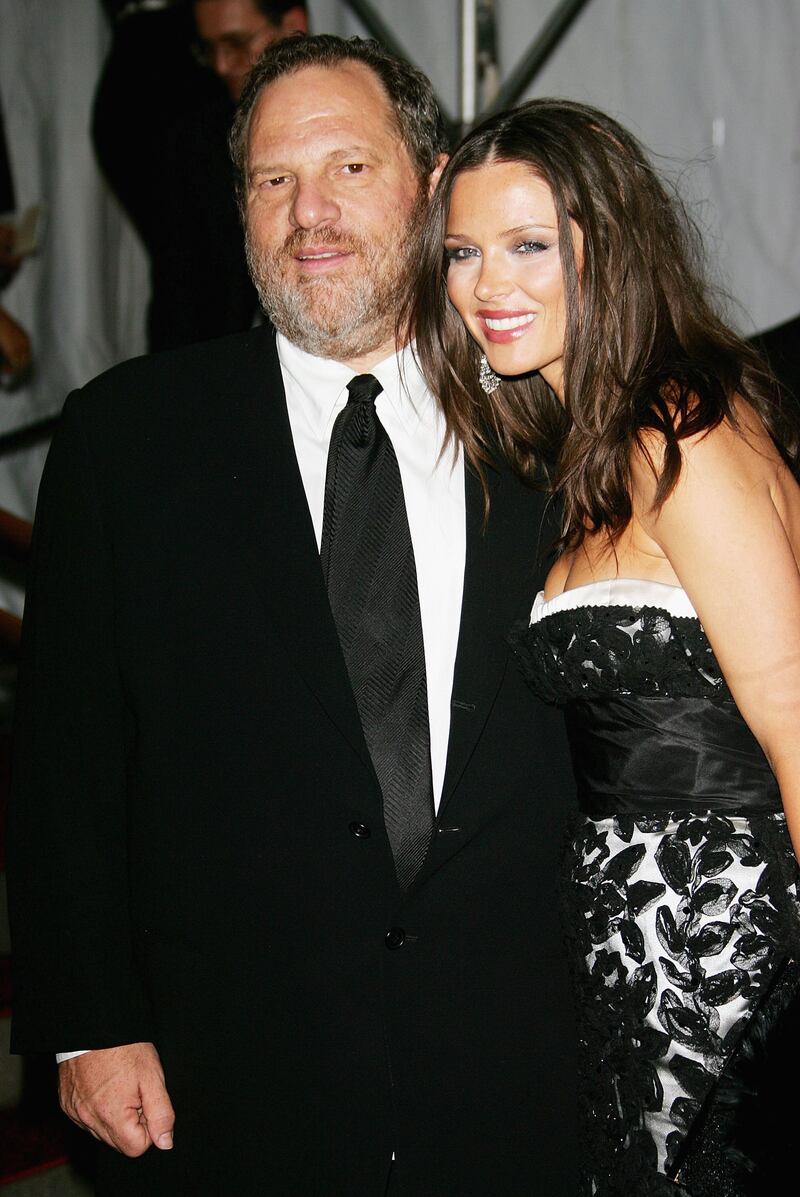
Harvey Weinstein won’t be attending this year either which is good news for the potted plants. And former fashion maven Kanye West‘s invitation probably got lost in the mail now that he’s now selling $20 T-shirts with swastikas. Still, Wintour must be worried that this cringe-artist might crash the party like he did at the Grammy Awards in Los Angeles in February. West wore an all-black outfit while his “wife” Bianca Censori wore her birthday suit.
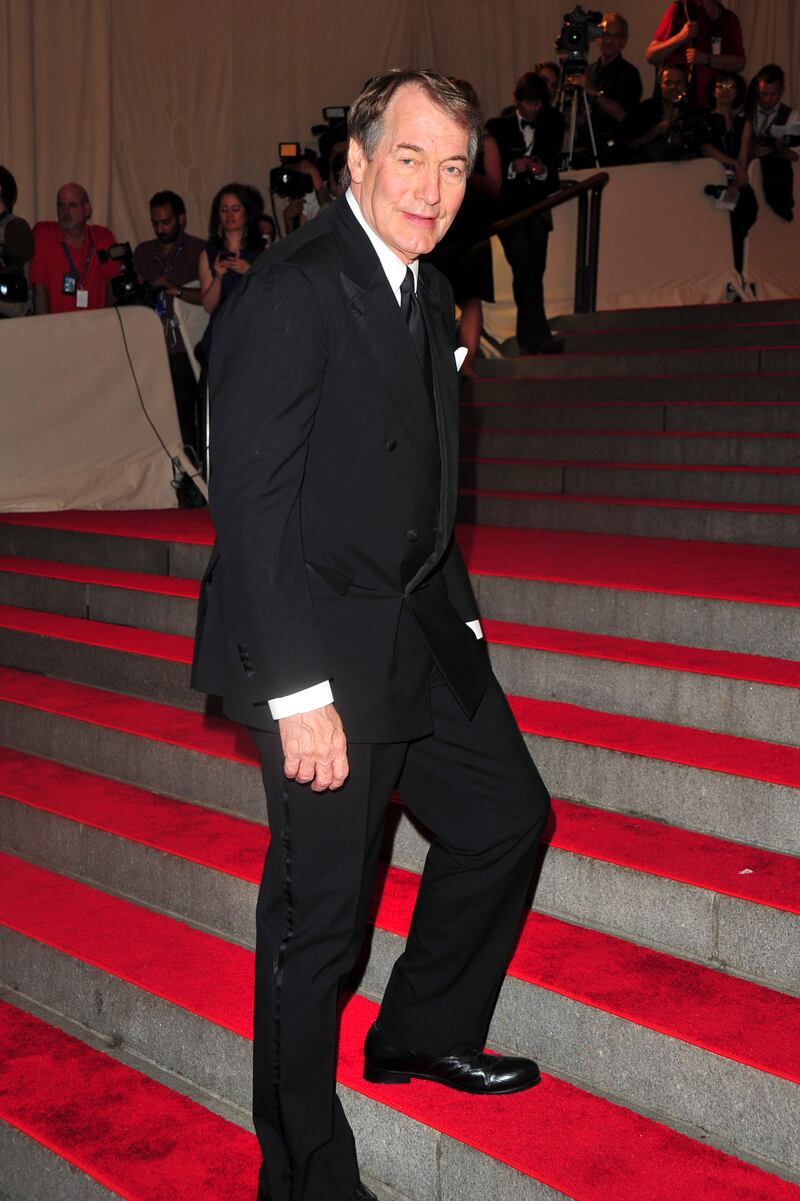
Lesser creep Charlie Rose was a fixture at the gala until he wasn’t. Same for Bruce Weber and Mario Testino—photographers once worshipped by the glossy elite, now sidelined after each were the subject of multiple MeToo allegations. (Weber settled with his accusers; Testino denied wrongdoing.)
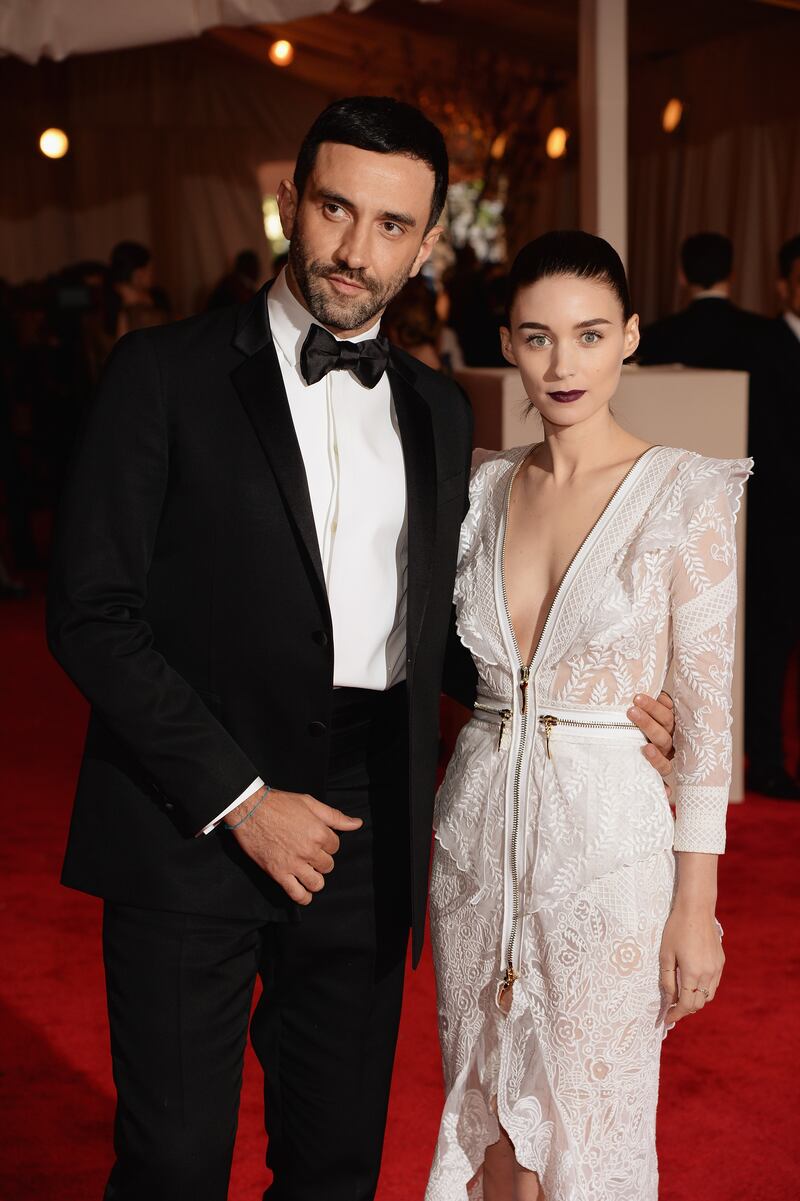
Last week Riccardo Tisci, the former creative head of both Givenchy and Burberry, was accused of sexual assault and drugging a man. He denies it. Alexander Wang, another darling of the Vogue circle, called similar allegations of abuse “baseless.“ That’s the thing about the Met Gala: it gives air cover to those with the right stylist and the right connections.
Even the most powerful now seem wary. LeBron James, who once found himself awkwardly gracing the cover of Vogue with a wide-eyed Giselle Bündchen in a spread many deemed racially tone-deaf, suddenly bowed out of this year’s festivities, citing, of all things, a knee injury, despite being its honorary co-chair. Meanwhile, Mark Zuckerberg and Elon Musk opted out entirely—perhaps realizing that they shouldn’t attend an event when its hostess has publicly banned their boss Donald Trump from attending.
To be fair, the gala remains a fundraising juggernaut, netting tens of millions for the Met Museum and its Anna Wintour Costume Center. But in the process, it has made fools of many in their breathless quest to be the most clicked-on person in the room.
This year’s crowd has its share of bona fide celebrities: Diana Ross, Demi Moore, Anne Hathaway and Miley Cyrus for starters. But they rubbed shoulders with an influx of twentysomething social media stars paid for showing off their borrowed diamonds. This group seems less interested in honoring art and fashion history and more obsessed with snagging a viral moment. One influencer stood on the Met steps live-streaming for six hours. Another collapsed in what turned out to be a calculated faint.
This isn’t fashion. It’s performance art with a publicist. And the devil is still wearing Prada.
